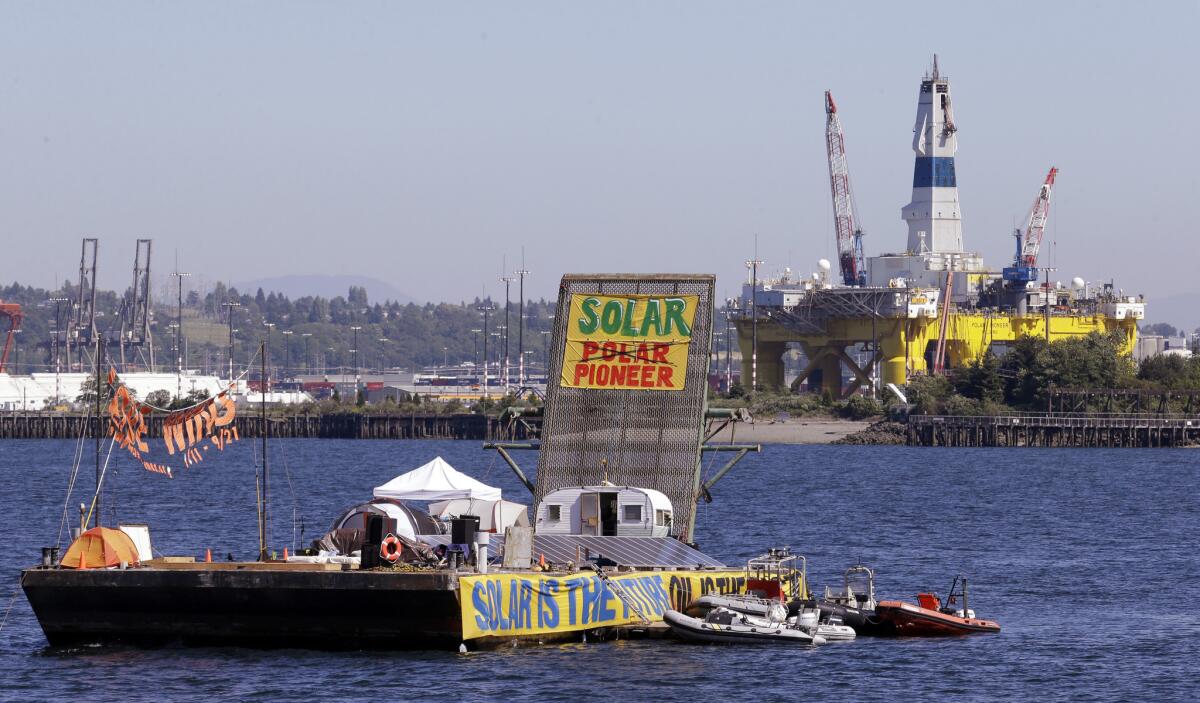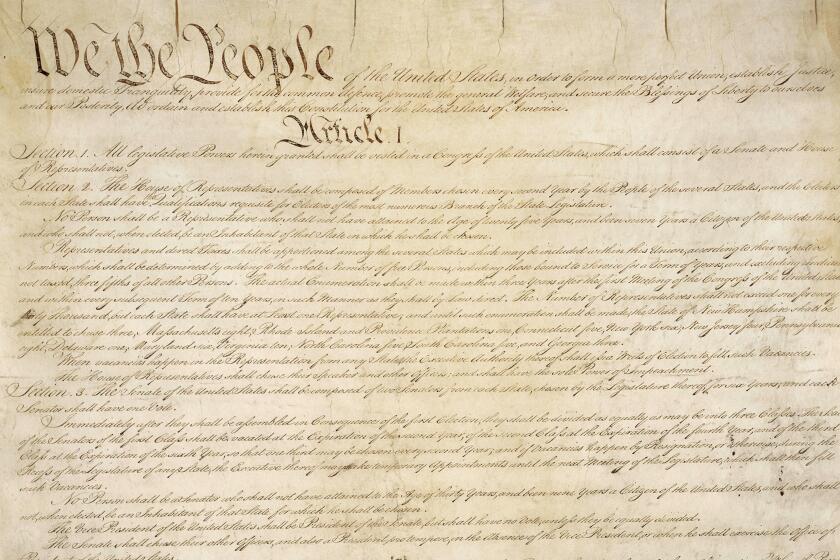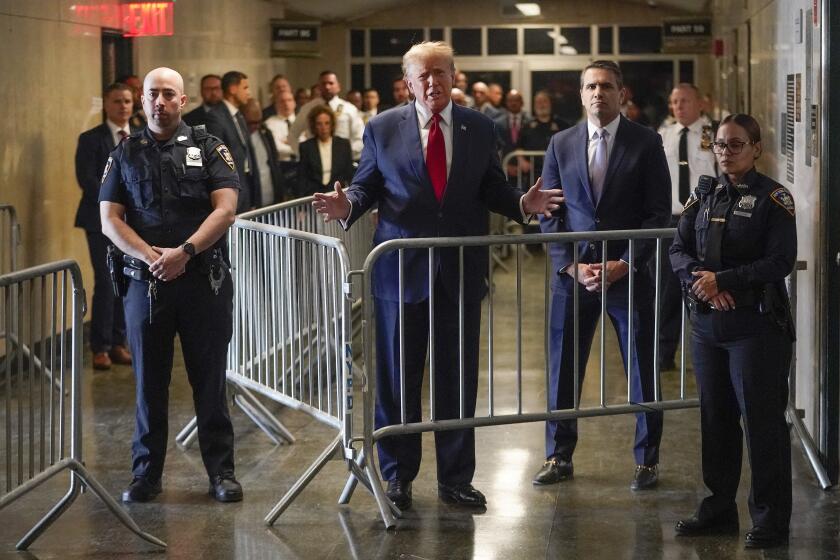Op-Ed: Local environmental activists don’t get to make federal policy

A barge used by protesters is anchored in view of the Arctic oil drilling rig Polar Pioneer in Seattle’s Elliott Bay in June. Six activists demonstrating against Shell’s rig were arrested as they blocked entrances to the city’s port.
When President Obama recently approved Shell’s request to drill in the Arctic, anti-fossil-fuel activists lobbied the Port of Seattle to deny docking rights to the oil giant’s Alaska-bound rig. That effort failed. Then activists persuaded Washington State’s King County to refuse the company a wastewater-discharge permit — an inconvenience that did nothing to stop Shell’s progress. Turning finally to old-fashioned protest, environmentalists in kayaks tried, unsuccessfully, to obstruct the rig en route to Alaska.
The Shell battle highlights a new tactic among environmental activists: Unhappy with policies made in Washington, they’re trying to use local regulations to set national policy. Pressuring cities and other local entities that control many of the nation’s ports, the greens hope to prevent fossil-fuel industries from obtaining permits and thus keep such energy from coming to market. And they’re having some success.
Under tremendous pressure from environmentalists, Portland, Ore., shot down a proposed propane-export terminal. Activist Daphne Wysham boasted that “residents of the Pacific Northwest have begun to mobilize in bold and successful resistance to these fossil fuel exports.”
Oregon greens are elsewhere trying to prevent the export of liquefied natural gas. As Stacey McLaughlin noted approvingly in an Oregonian op-ed, “If they cannot export natural gas, then they will need to cut back on fracking.” Similar battles are raging north of the border, in British Columbia, and on the East Coast. South Portland, Maine, for instance, banned the export of crude oil arriving there via pipeline.
Historically, coastal cities have sought to maximize port traffic as a way to boost their local economies. Now these cities, often under the control of the left, have lost interest in boosting blue-collar employment and union jobs. Instead, activists see control of ports and permitting as a means of advancing green-policy preferences.
Unlike other locally focused urban environmental policies — such as plastic-bag bans — targeting ports and permits has the potential for nationwide, even global, impact. The constitutional basis for doing so, however, is dubious.
States and localities cannot unduly burden interstate commerce — a principle that the Supreme Court recently reaffirmed in Comptroller of the Treasury of Maryland vs. Wynne, which barred Maryland from implementing double taxation of income.
The federal government also long ago restricted localities from regulating railroads. Lawmakers wisely understood that a web of parochial interests and NIMBYism would choke the national economy, and that the negative local effects, if any, from rail operations could not justify allowing states, cities, and towns to impose regulations that would impede trade.
Broadly speaking, localities also cannot stop projects such as long-distance pipelines or electric transmission lines.
In areas where federal policy is in their favor — immigration enforcement, for example — the left agrees that localities shouldn’t have the right to do as they please. They’ve rallied against and sued to overturn local regulations targeting illegal immigrants, such as ordinances in Farmers Branch, Texas, and Fremont, Neb., that prohibited leasing apartments to those in the country illegally.
The national-control-over-NIMBYism principle should apply equally to ports, because interstate commerce, like immigration, is a federal responsibility. Localities should not be able to block global trade — especially when no bona fide local issues are at stake and when the people promoting such intrusion have clear political motives. Congress and the president, not disruptive activists, have the right to make trade and environmental policy for America.
Aaron M. Renn is a senior fellow at the Manhattan Institute and a contributing editor of City Journal. This piece has been adapted from the Manhattan Institute’s City Journal.
Follow the Opinion section on Twitter @latimesopinion and Facebook
More to Read
A cure for the common opinion
Get thought-provoking perspectives with our weekly newsletter.
You may occasionally receive promotional content from the Los Angeles Times.






